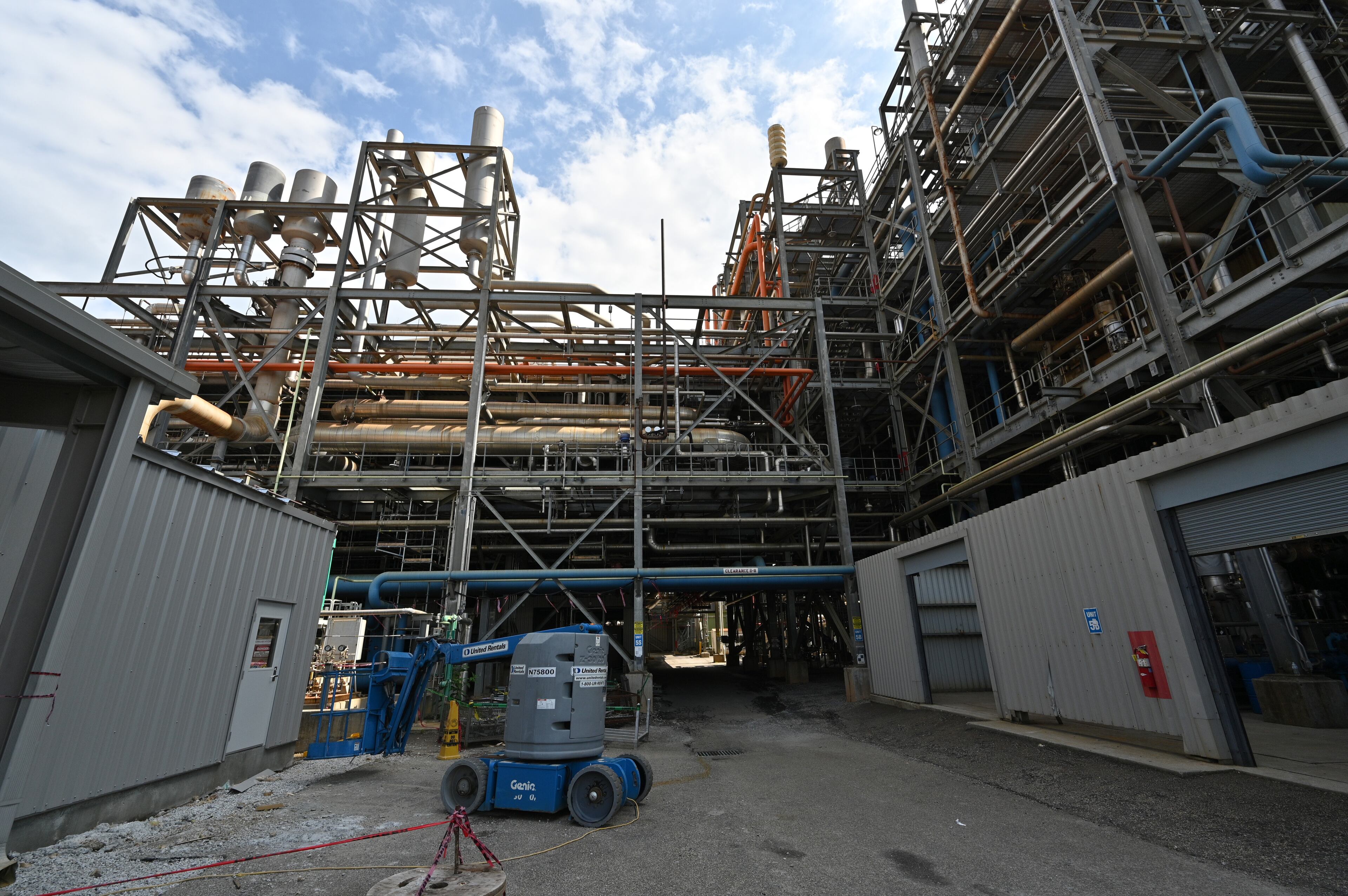Hyundai neighbors to state: Don’t treat Ogeechee River ‘like a ditch’
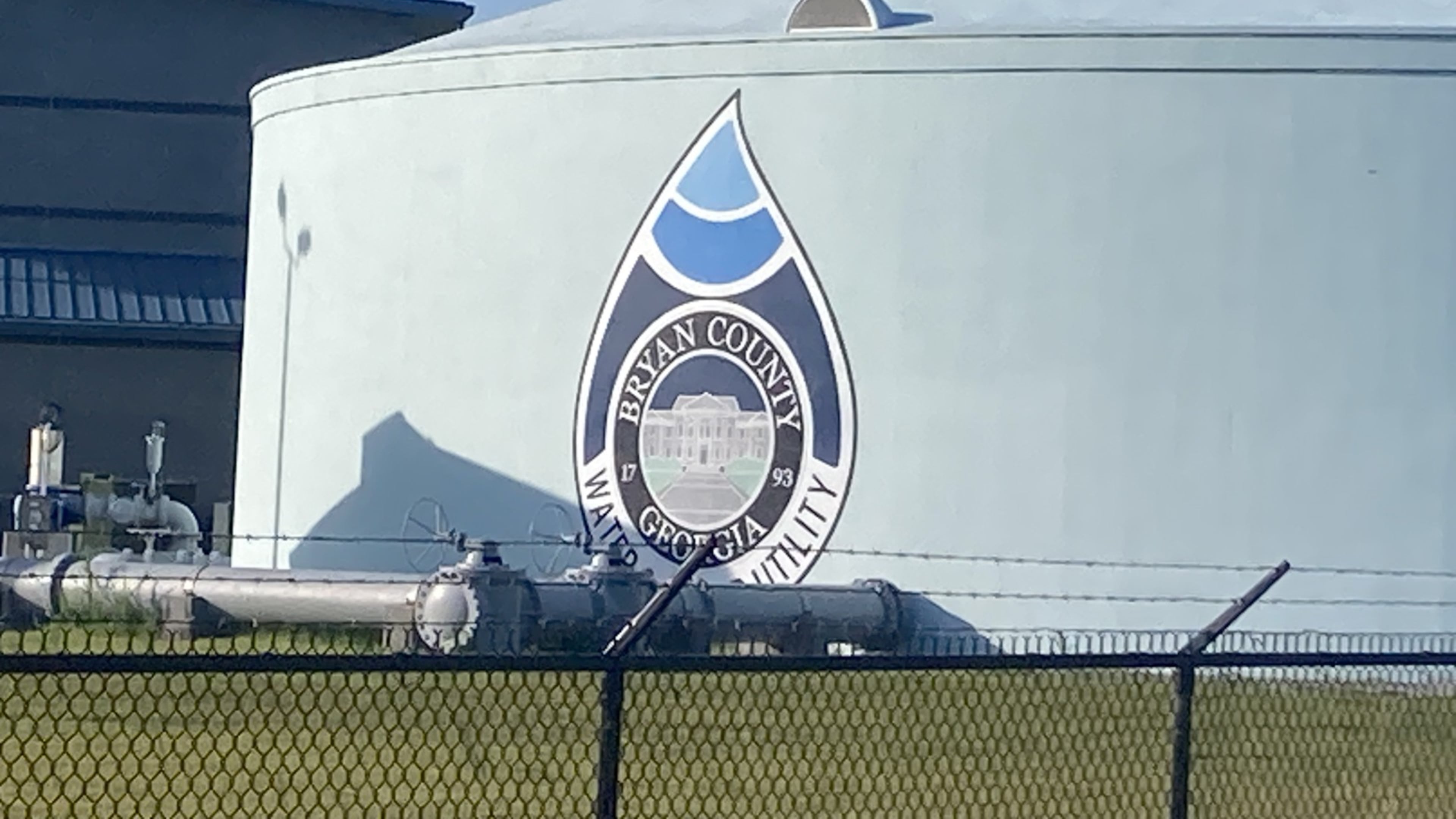
PEMBROKE ― Connie Shreve brought her canoe paddle and life jacket with her Thursday to a public hearing at an elementary school cafeteria miles away from the closest waterway.
She packed in the props to make a point during a public hearing regarding Hyundai Motor Group’s wastewater permit. The South Korean automaker is seeking state approval to pump its industrial waste from its massive electric vehicle assembly plant to a soon-to-open treatment facility and from there into the nearby Ogeechee River. The factory, located along 1-16 about 25 miles west of downtown Savannah, opened last October.
Shreve operates an outdoors recreation business, Ogeechee Outpost, downstream from where the treated water will be discharged into the river. She said there are “too many pipes” in the river.
“The Ogeechee deserves a lot more respect,” Shreve said. “It shouldn’t be treated like a ditch.”
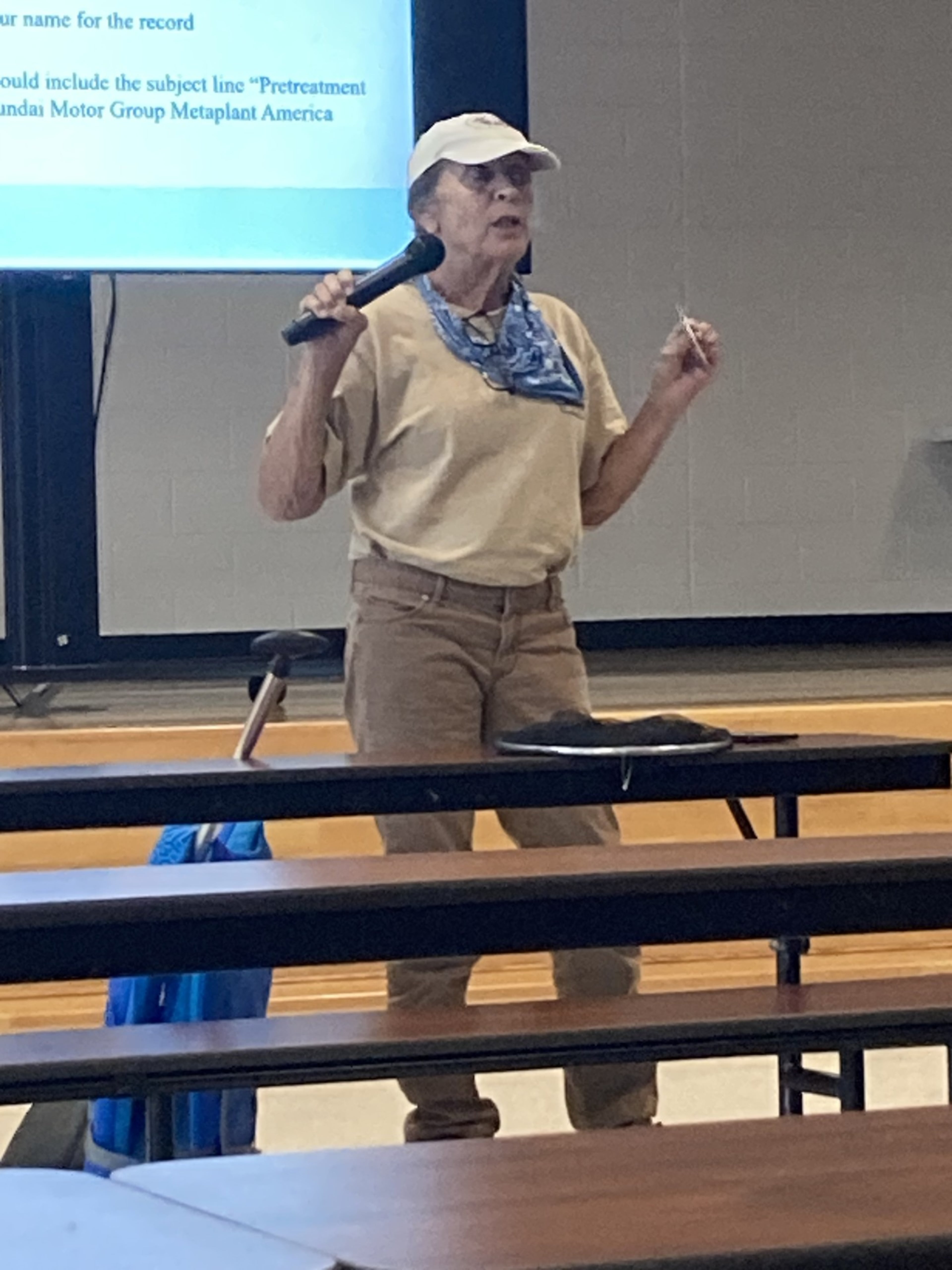
Shreve was among fewer than a dozen local residents to attend the hearing, the second in two days involving wastewater draft permits for operators on the nearly 3,000-acre manufacturing campus. EPD officials on Wednesday conducted an even more sparsely attended public hearing on a permit related to an EV battery plant, being built adjacent to the assembly facility. That factory is a joint venture between Hyundai and LG Energy Solution and is projected to open next year.
The few attendees voiced concerns about the turnout, especially given Hyundai’s previous issues with industrial waste disposal. The automaker was fined $30,000 earlier this year for pumping water used in metal finishing with high concentrations of copper and zinc to municipal water treatment plants in Savannah and Richmond Hill.
“This room is way too empty,” said Corey Foreman, a Bryan County resident.
The permits would allow Hyundai to pump its wastewater to the soon-to-open North Bryan County Water Reclamation Facility, a $129 million project located across I-16 from the Hyundai factories. The treatment plant is to begin operations before the end of the year with the capacity to handle 5 million gallons daily.
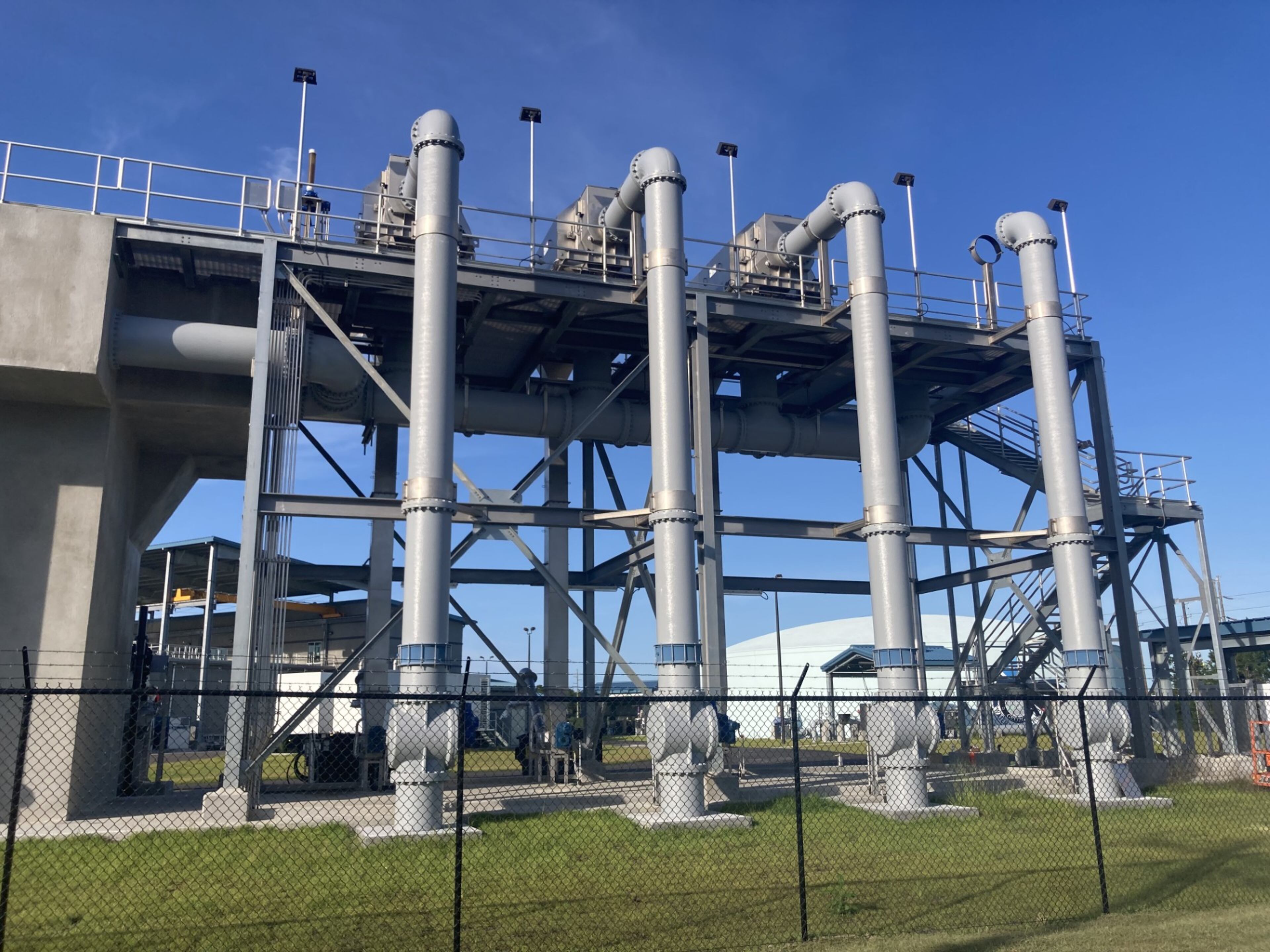
Industrial waste disposal is just the latest challenge Hyundai has encountered since transforming a largely untouched tract into an operational EV manufacturing campus in less than two years. The rapid build-out, meant to position the South Korean automaker to meet EV demand later this decade, has contributed to issues with water supply, traffic near the facility and construction site safety.
Even before full vehicle production began in October 2024, Hyundai was forced to use unorthodox methods to deal with its industrial waste.
The processor that had agreed to handle Hyundai’s wastewater until the North Bryan facility came online — the city of Savannah’s Travis Field treatment plant near the Savannah-Hilton Head International Airport — found heavy concentrations of copper and zinc in the waste coming from the Hyundai plant and quit accepting the wastewater after just 23 days, according to public records.
Another treatment facility, one located in nearby Richmond Hill, stopped processing Hyundai wastewater in November when test samples there indicated high levels of contaminants.
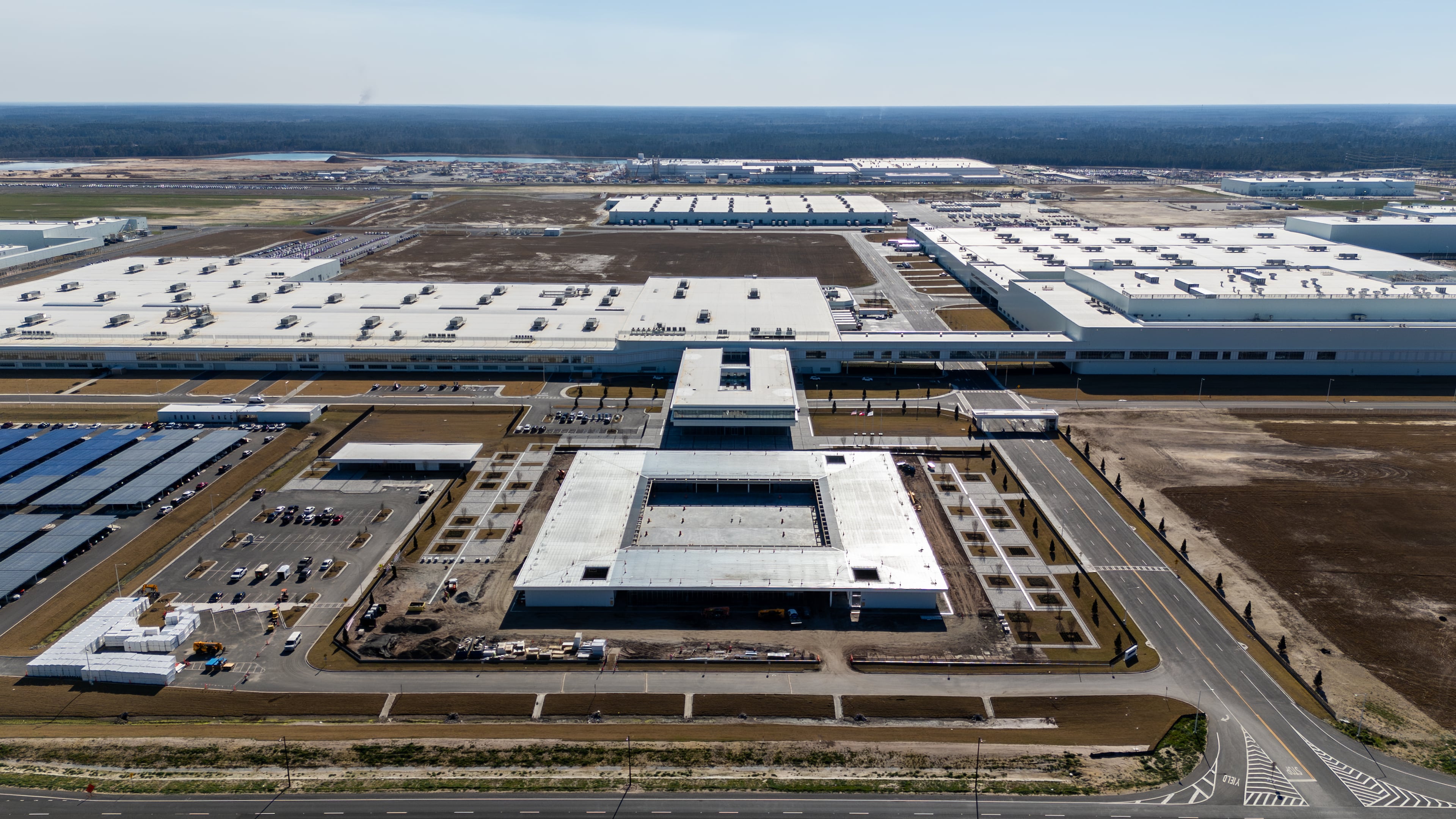
Georgia environmental regulators cited Hyundai for violating wastewater disposal requirement and announced a $30,000 fine in May. Under Georgia law, the penalty could have exceeded $7 million.
Hyundai blamed the pipes of its factory’s wastewater pretreatment system for the issues. The automaker is replacing the infrastructure, but the process is expected to take several more months.

With nearby municipal treatment facilities refusing to process the wastewater, Hyundai began trucking millions of gallons of industrial waste to privately owned processors outside the Savannah area. The automaker continues to dispose of its wastewater this way, a company representative confirmed earlier this week.
Hyundai’s wastewater woes were first reported by The Current, an online news website that focuses on coastal Georgia, based on documents provided by the Ogeechee Riverkeeper. That group is an environmental watchdog organization focused on the Ogeechee River, which meanders past the Hyundai property along its eastern boundary.
A Ogeechee Riverkeeper staffer, legal director Ben Kirsch, encouraged a more stringent monitoring plan than the one outlined in Hyundai’s draft permit during Thursday’s meeting. The EPD recommends increased monitoring of Hyundai’s wastewater for just the first month after it begins pumping to the new water reclamation facility. Hyundai is to handle testing and provide reports about the water quality to the EPD.
Kirsch suggested the more intense monitoring be required until Hyundai’s wastewater is found in compliance in consecutive months and then again in consecutive months once the factory reaches full production, likely sometime later this decade.
“That would reassure not only the EPD but the community as well,” he said.
Editor’s note: This story has been updated to clarify comments from an Ogeechee Riverkeeper official.

